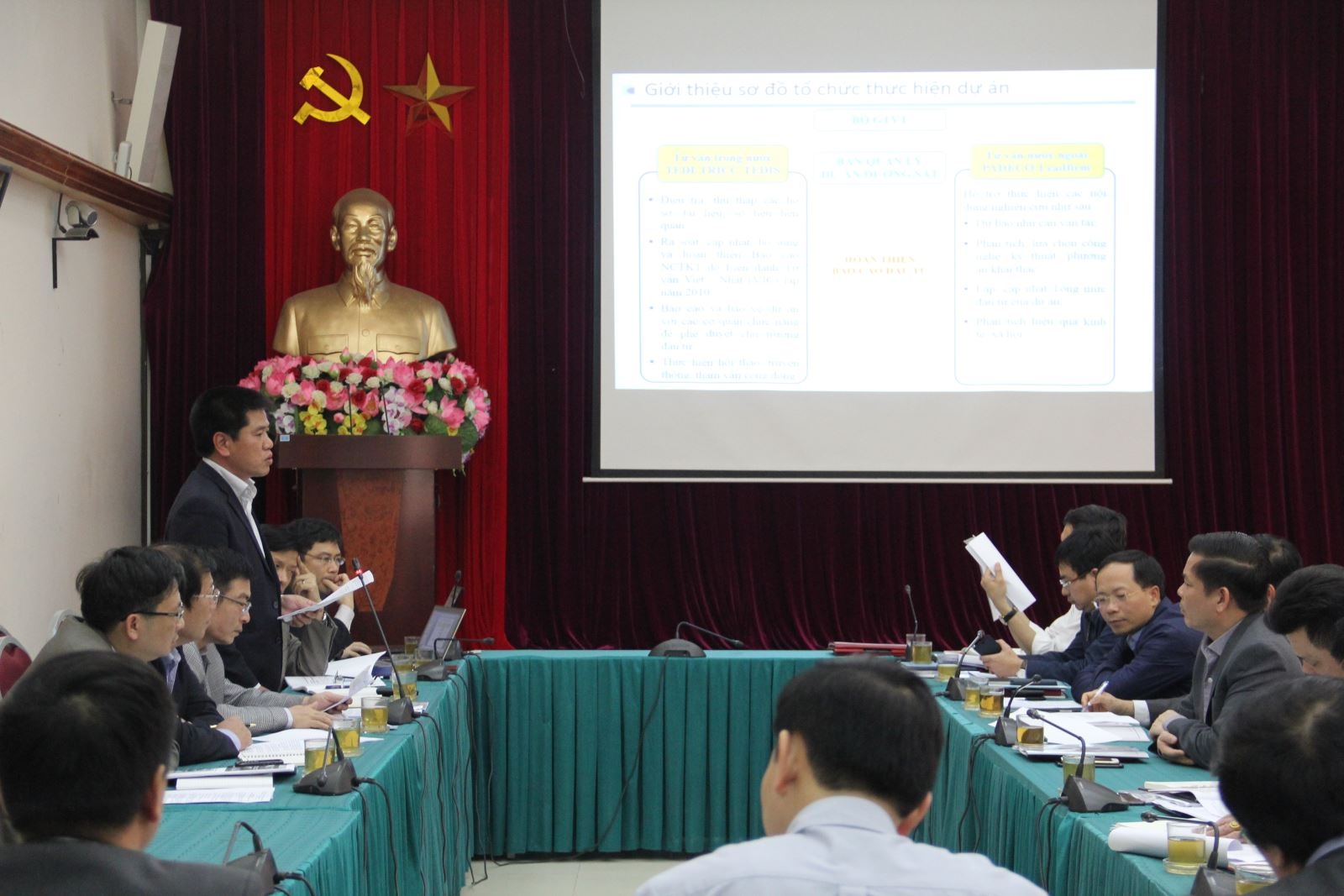Fast-tracking North-South high-speed railway project
 |
| Officials discussed means to speed up the prefeasibility study |
Minister of Transport Nguyen Van The made the request at a meeting held in late February 2018, saying that the prefeasibility study will be submitted to the National Assembly (NA) for approval next May.
"It is urgent to fast-track the North-South high-speed railway project, thus enabling the country to prepare state funding and to work out measures to call on domestic and foreign investment to modernise the North-South railway network in 2020-2025," he added.
According to Deputy Minister of Transport Nguyen Ngoc Dong, the issues needed to be clarified in the prefeasibility study are technology, investment efficiency, investment roadmap, management, operation, and others.
To ensure the submission schedule, Dong asked the consultants to complete the first-term report of the prefeasibility study within this month.
| The North-South high-speed railway project is attracting growing interest among foreign investors, including those from the US, South Korea, and Japan. |
The North-South high-speed railway project is attracting growing interest among foreign investors, including those from the US, South Korea, and Japan.
As expected, Vietnam will offer special incentives for railway business and investment activities in a bid to increase private investment inflows to the industry.
One of the highlight incentives in the Railway Law 2017 is that investors in national railway infrastructure and metro lines will have all site clearance costs covered by the state.
The other breakthrough incentive policies are land use fee exemptions, government guarantees for loans, corporate income tax (CIT) reductions, and import duty exemptions.
Companies are likely to be allocated and exempted from land use fees for the area used to develop national railway infrastructure and metro lines, while specialised railway infrastructure will be subjected to land leasing fee exemptions.
In addition, based on financial capacity, the state will also offer loans at preferential interest rates from state credit sources or grant government guarantees for loans in line with public debt management rules for investments in developing national railway infrastructure and metro lines. These provisions will also apply to the purchasing of means of railway transport and machines and equipment for railway maintenance.
Businesses will also be exempted from the import duty for machines, equipment, spare parts, means of railway transport, and manufacturing materials that local production sources fail to provide.
Moreover, firms that specialise in railway infrastructure and metro line business activities will enjoy CIT incentives in line with current rules.
The new law will take effect on July 1, 2018 and replace the 2005 Railway Law.
What the stars mean:
★ Poor ★ ★ Promising ★★★ Good ★★★★ Very good ★★★★★ Exceptional
Related Contents
Latest News
More News
- Foreign fruits flood Vietnamese market (December 09, 2025 | 13:22)
- Vietnam’s fruit and vegetable exports reach $7.8 billion in first 11 months (December 05, 2025 | 13:50)
- Vietnam shapes next-generation carbon market (November 26, 2025 | 15:33)
- PM urges Ho Chi Minh City to innovate and remain Vietnam’s economic locomotive (November 26, 2025 | 15:29)
- Experts chart Vietnam's digital finance path: high hopes, high stakes (November 14, 2025 | 10:56)
- Vietnam’s seafood imports surge 30 per cent in first 10 months (November 10, 2025 | 19:35)
- Vietnam’s durian exports hit $1 billion milestone (October 30, 2025 | 17:41)
- Beyond borders: Sunhouse and new era of Vietnamese brands on Amazon (October 28, 2025 | 10:46)
- Record-breaking trade fair set to open in Hanoi (October 15, 2025 | 15:59)
- Timber sector seeks solutions to VAT refunds (October 14, 2025 | 18:58)

 Tag:
Tag:




















 Mobile Version
Mobile Version